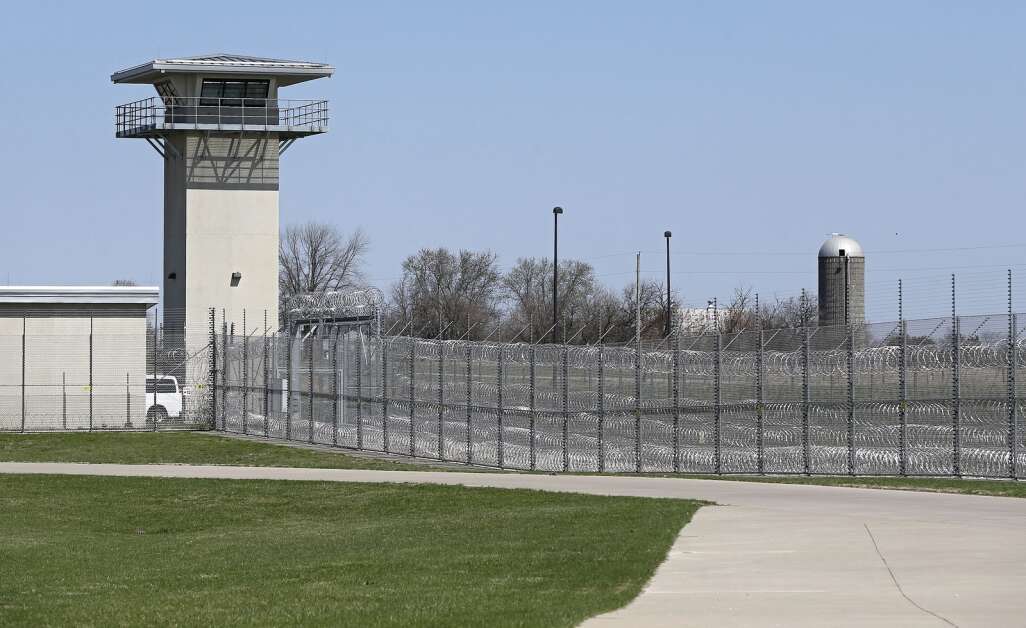The Gazette offers audio versions of articles using Instaread. Some words may be mispronounced.
DES MOINES — An aging inmate population — roughly two-thirds of which are managing a chronic condition or require ongoing medical or mental health treatment — is among the reasons Iowa may contract a private company to provide health care services at state-run prisons, according to a state document.
The state last week issued
a request for proposal
seeking pitches from private health care companies who may wish to provide health care services at Iowa’s nine correctional institutions.
The state notified current health care staff in the Iowa Department of Corrections via email — obtained and reported by The Gazette — two days before the RFP was published.
The RFP goes into even greater detail listing reasons why the state is exploring the privatization of health care services in Iowa’s prison system.
Why Iowa believes it needs private prison health care
The RFP document says:
- 17 percent of Iowa’s inmates are 50 years of age or older, and of those, 30 percent are managing four or more chronic conditions;
- Approximately 60 to 70 percent of Iowa’s inmates require “ongoing medical or mental health treatment”;
- 63 percent of Iowa’s inmates are managing at least one chronic condition, such as hypertension, diabetes or hepatitis C;
- 57 percent of Iowa’s inmates experience mental health disorders, including schizophrenia, bipolar disorder and depression;
- Nearly half of Iowa’s inmates have a substance use disorder.
The document also lists other challenges and cost drivers, including staffing shortages and rising pharmaceutical costs, and notes that all of Iowa’s prisons are currently over capacity.
“IDOC faces significant challenges in delivering correctional healthcare due to the complex needs of its incarcerated population,” the document says. “These factors, along with the need for robust coordination with the University of Iowa Hospitals and Clinics for specialty referrals, underscore the necessity for a highly capable healthcare provider to address these multifaceted challenges.”
The Iowa Department of Corrections did not respond to The Gazette’s requests for comment and information Tuesday, or last week.
Roughly 300 Iowa Department of Corrections health care workers would be impacted, according to the RFP. The document says the private company “must allow opportunity for all current, permanent status employees working for DOC at (sic) as medical personnel to be considered for employment” when the contract begins.
The RFP also highlights its desire for an updated electronic health record (EHR) system. The RFP describes the Iowa Department of Corrections’ current system as “aging,” and one that requires “significant technical adaptability from providers” because of its age.
“Looking ahead, the EHR must evolve to interface seamlessly with external agencies — including the Department of Health and Human Services (HHS), Medicaid, and Managed Care Organizations (MCOs) — to support potential future applications for a (federal) reentry waiver, which would enhance care continuity and reentry services for incarcerated individuals,” the RFP says.
The private prison health care landscape
A handful of companies provide a large portion of privatized health care services to prisons, according to media and advocacy organization reports: Wellpath Holdings Inc, NaphCare Inc, Corizon, PrimeCare Medical Inc., and Armor Correctional Health Services Inc.
While there is no definitive source that details the extent of the privatization of prison health care in the U.S.,
the Petrie-Flom Center
for health law policy, biotechnology and bioethics at Harvard Law School found that
a Pew Charitable Trusts study
showed that by 2015 a total of 20 states had fully outsourced prison health care services to private companies and eight more states privatized at least a portion of those services. And in 2020,
a Reuters review of health care data
from 523 U.S. jails between 2008 and 2019 found that 62 percent had outsourced prison health care to private companies.
The Reuters report found that, between 2016 and 2018, prisons who relied on one of the five leading private prison health care companies saw higher death rates than facilities with government-run health care services.
A report earlier this year from the Prison Policy Initiative
, a nonprofit, nonpartisan research organization that advocates for “a more just society” and highlights “the broader harm of mass criminalization” argued that private prison health care companies stress lowered costs and savings over providing appropriate health care.
“Proponents of privatized correctional health care argue that free market competition weeds out bad actors and punishes those who deliver poor care, rewarding firms that provide the best quality and most economically efficient delivery of health care,” Brian Nam-Sonenstein wrote in the report, titled “Cut-rate care: The systemic problems shaping ‘health care’ behind bars.”
“While this sounds nice, in practice it’s been demonstrably false: as we have seen in countless correctional facilities across the country, providers have no problem landing new contracts and renewals despite horrific care, bad press, mounting annual healthcare costs, and lawsuits,” Nam-Sonenstein wrote. “Contrary to the free market’s promise, many of the worst providers survive, sometimes thanks to bankruptcy laws that rescue them from the consequences of their actions and leave incarcerated people in the dust.”
What is the timeline?
Companies interested in proposing their services to providing health care at Iowa’s prisons must indicate their interest to the state by July 31, and proposals are due by Sept. 26.
The initial contract will be for three years, according to the RFP.
Comments: (515) 355-1300, [email protected]
Get the latest Iowa politics and government coverage each morning in the
On Iowa Politics newsletter
.






